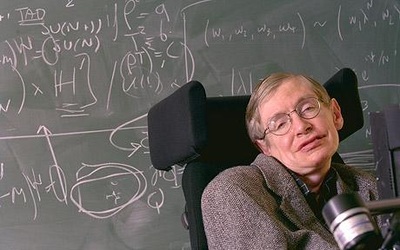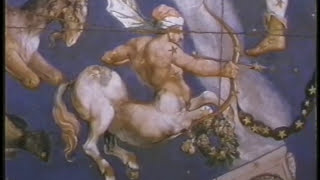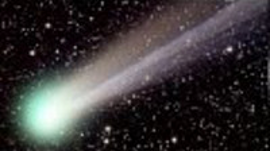A Brief History of Unicorns
The Death of Stephen Hawking
U = NiC + OrN / g(0)
By David Drew aka The Soupdragon

The death of Stephen Hawking made headline news worldwide. Tributes poured in for the ‘inspirational’ British physicist — best known for his work with Black Holes and Relativity — who wrote several popular science books, including A Brief History of Time. It is often joked that this was one of the least-read best-sellers of all time, despite Hawking heeding the advice of his publishers and minimizing the number of equations. This can’t have been easy given that his theories are based almost entirely upon mathematical equivocations, I mean equations. It has decorated bookshelves the world over, having been translated into numerous languages.
A complaisant mainstream media was quick to fall in line with the scientific establishment and praise Hawking to the heavens. The same scientific establishment is equally quick to attack and undermine competing cosmologies. Did you know that they lobbied the FCC to fine NBC for airing an alternative view in 1996 when they ran the series Forbidden Archaeology? Talk about petty and vindictive. You couldn’t make it up. Advocates of Plasma Cosmology have suffered similar harassment more recently.
The film of his life ‘The Theory of Everything’ was a box office success in 2014. I guess they probably considered calling it ‘A Brief History of Hawking.’ Much like his famous book, it successfully reached beyond those with an interest in science. Presumably, however, those who attended cinemas to view it did actually sit through the whole thing. And why wouldn’t they? It was a very good movie. The romantic biographical drama set at Cambridge University enjoyed numerous positive reviews.
Personally, I am ambivalent towards Hawking. I enjoyed the movie as much as I laughed at the book. With an interest in science in general and cosmology in particular, I admire anyone who popularizes the subject matter. No news is bad news as they say and, as I have mentioned, his work occasionally reached beyond the scientific crowd. There was another side to Hawking, however.
He once famously said that philosophy was dead and that it had failed to keep up with developments in science. I found this statement curious for a number of reasons. Not least because science is a branch of philosophy, originally referred to as empiricism — the art of measuring and observing. Taking the philosophy out of science thus seems somewhat akin to taking the water out of the oceans. Science without reference to philosophical doubt is inevitably destined to flounder like a fish out of water. True skepticism is at the heart of good science, and not the casual dismissal of other disciplines.
Chairs of Science used to be referred to as Natural Philosophers in most universities. Perhaps Hawking was thinking along the lines that science had somehow become less philosophical, at least in name. Nonetheless, his criticism of philosophy aroused my suspicions. In my experience, those who deride philosophy generally do so because they fear the questioning of their own ‘expertise.’
“We should remember that there was once a discipline called natural philosophy. Unfortunately, this discipline seems not to exist today. It has been renamed science, but science of today is in danger of losing much of the natural philosophy aspect.”
~ Hannes Alfvén
Philosophy simply means the love or study of knowledge. Putting all its wordy aspects aside, as these seem to frighten some people, philosophy might be summed up as follows: ‘What do we know?’ ‘How do we know it?’ and ‘How sure can we be?’ In respect of modern math-based cosmology, perhaps these three questions can be simplified into just one: “Is mathematics really an infallible tool for establishing universal truths?”
I have heard the boiling frog analogy used in respect of Hawking. While there is no doubt that he was a highly intelligent man, and a gifted promoter of consensus science, despite a medical condition that would have seen lesser men throw in the towel far sooner, there is nonetheless a feeling in some circles that he failed to see beyond the limitations of a purely math-based theoretical approach.
Compare and contrast the approach of two of the founding fathers of Plasma Cosmology, Kristian Birkeland and Hannes Alfvén, both Scandinavian. Birkeland favored a broad approach to science, comprising observation and laboratory experimentation, in addition to mathematical modeling. He was not content with a merely theoretical approach, despite having trained as a mathematician himself. He proposed — correctly as it turns out — that the Northern Lights were powered by electrical particles emitted by the Sun. His theory was supported by the now-famous Terrella Experiments, and even an expedition to the North Pole! His electromagnetic notions were laughed at by desk-based theoreticians at the time.
Hannes Alfvén, who eventually won a Nobel Prize for his work in Plasma Physics — despite flying in the face of mainstream science for much of his life — was not known to suffer fools. He was a noted critic of the Big Bang and math-based cosmology:
“We have to learn again that science without contact with experiments is an enterprise which is likely to go completely astray into imaginary conjecture.”
Hawking’s quotes have been trotted out ad nauseam since his passing. My personal favorite is this: “The greatest enemy of knowledge is not ignorance, it is the illusion of knowledge.” Well, I certainly can’t argue with that one.
After all, it is an often overlooked fact that ideas like Black Holes and Big Bangs remain little more than speculations, albeit speculations that have solidified into dogma, in no small part thanks to the ‘mathemagical’ approach favored by Hawking and his ilk. Black Holes were only the start of all the dark stuff. Invisible hypotheticals like Dark Matter and Dark Energy now supposedly makeup about 90% of the visible universe, if you’ll pardon the paradox.
I discussed some of the problems of math-based cosmology in an earlier blog, ‘A Road Less Travelled.’ As I stated in that piece, the importance of mathematics is not denied but, more pertinently, the limitations should not be ignored either.
“Physics is mathematical not because we know so much about the physical world, but because we know so little.”
~ Bertrand Russell
Even when we accept the important contribution of mathematics to so much consensus science, problems remain. The pre-eminent mathematician, Stephen Crothers, has exposed many of the leaps of faith — not to mention blatant errors — that hide inside some of the complex equations that ostensibly ‘prove’ various theorems: Black Hole and Big Bang: A Simplified Refutation.
By way of tragic irony, or perhaps synchronicity, or even comedic timing (maybe a combination of all three,) Hawking died on the same day Einstein was born. Their ideas might live a while yet, however, much to the chagrin of some.
“Hawking was a pop scientist who ipso facto contributed nothing of value to science. Einstein was the first pop scientist; promoted at some time or another by that other entertainer, Charlie Chaplin. Hawking and the Einstein cult have ruined physics and astronomy, turning them into circus freak shows. Science cannot just wait until they all disappear. Whilst they are active they are ruining young minds entering science, to be caught up in the same rat race, producing more pop scientists. The cycle must be broken.”
~ Stephen Crothers
 David Drew, who hails from the UK, has enjoyed a long interest in science, philosophy, and cosmology. He has been involved with the Electric Universe since around 2004 and published his own website, plasmacosmology.net in 2006. The purpose of his website is to provide an introduction to the emerging Plasma Universe paradigm and to explore some of the many far-reaching implications. David was the first to publish videos promoting EU ideas on YouTube and other video-sharing platforms. One of the most popular of these explores parallels with the work of the cult hero, Nikola Tesla (https://www.youtube.com/watch?v=akM9KNEv_JE). David is also known as The Soupdragon.
David Drew, who hails from the UK, has enjoyed a long interest in science, philosophy, and cosmology. He has been involved with the Electric Universe since around 2004 and published his own website, plasmacosmology.net in 2006. The purpose of his website is to provide an introduction to the emerging Plasma Universe paradigm and to explore some of the many far-reaching implications. David was the first to publish videos promoting EU ideas on YouTube and other video-sharing platforms. One of the most popular of these explores parallels with the work of the cult hero, Nikola Tesla (https://www.youtube.com/watch?v=akM9KNEv_JE). David is also known as The Soupdragon.
The ideas expressed in Thunderblogs do not necessarily express the views of T-Bolts Group Inc. or The Thunderbolts ProjectTM.












